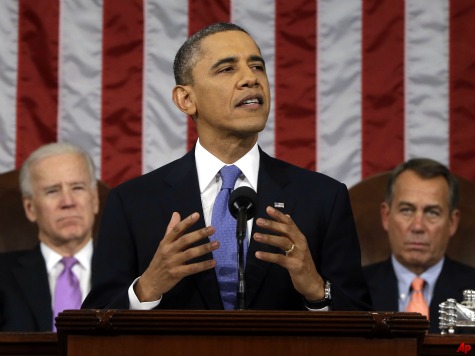
President Obama calls for comprehensive immigration reform in Tuesday’s State of the Union Address (courtesy of Breitbart)
In Tuesday’s State of the Union address, President Obama called on Congress to complete an immigration reform bill. His charge was, “Now let’s get this done. Send me a comprehensive immigration reform bill in the next few months, and I will sign it right away.”
Meanwhile, a group of bipartisan senators have proposed the Startup Act 3.0, which would provide visas to immigrant entrepreneurs and foreign students with Master’s degrees and Ph.D’s from US universities in STEM disciplines (science, technology, engineering, and mathematics). These are intelligent reforms to keep talented and educated workers in the US, as well as to attract the best and brightest from around the world to experiment and develop new products and ideas here.
The proposed Startup Act 3.0 would grant up to 75,000 new entrepreneur visas to business founders who raise $100,000 for new ventures, and who hire at least two employees within one year and at least five employees within the following three years. This development would dramatically change how students and foreign nationals go about creating new businesses in the United States.
This proposal is incredibly important and should be part of a comprehensive immigration reform package. The options for today’s foreign entrepreneurs are limited and daunting. If an entrepreneur wants to come to the US to pursue a new business, the current options include:
- Pursing an EB-5 green card, which requires an investment of $1,000,000 in personal money. Therefore, this excludes most young entrepreneurs, or even older entrepreneurs who would seek outside funding.
- Pitching a business idea to an existing company and getting a visa through that company to work on the project.
- Attempting to build a company while pursuing full-time employment with another employer.
- Starting a company abroad, and then launching a new US office.
The Startup Act 3.0 would present the opportunity for enterprising foreign nationals to build companies in the US without the above hassles. Now, when a student or business person has a brilliant idea, if they can get the funding, they can start a business here in the US.
However, that $100,000 funding requirement is still daunting and unnecessary. Many of today’s great business ideas do not require a lot of funding to try. The next Facebook, Instagram, or Groupon might be able to be started for much, much less. Moreover, there are many great ideas out there that will not be able to attract funding. This funding requirement will reward those who are well-connected to capital sources, but will greatly discourage those who merely work hard and have a great business idea. After all, we should not discourage the foreign national who has an idea for a great local business, which will employ 10 people and not more. Conversely, we should not only reward the high-risk tech businesses that may initially employ hundreds, but may in the end dissolve and employ zero employees.
The second part of the Startup Act 3.0’s proposal is to grant up to 50,000 visas for foreign students who graduate with advanced US degrees in STEM fields, and who spend at least five years pursuing careers in those fields. This is a great idea, as we currently lose many of America’s best-educated employees by either making it difficult to get a job due to the H-1B cap, or difficult to keep a job due to the demanding and obtuse PERM green card process. By ensuring visas for those who work in their trained fields, we will have a better workforce, with more of the employees making true innovations in today’s economy.
Here at VISANOW, we see great American companies paying high wages to talented employees trained at American universities. However, we also see many potential employees lost due to the challenges of retaining those students through our current immigration system. This program would be a boon to US business, US universities, and the American economy.







